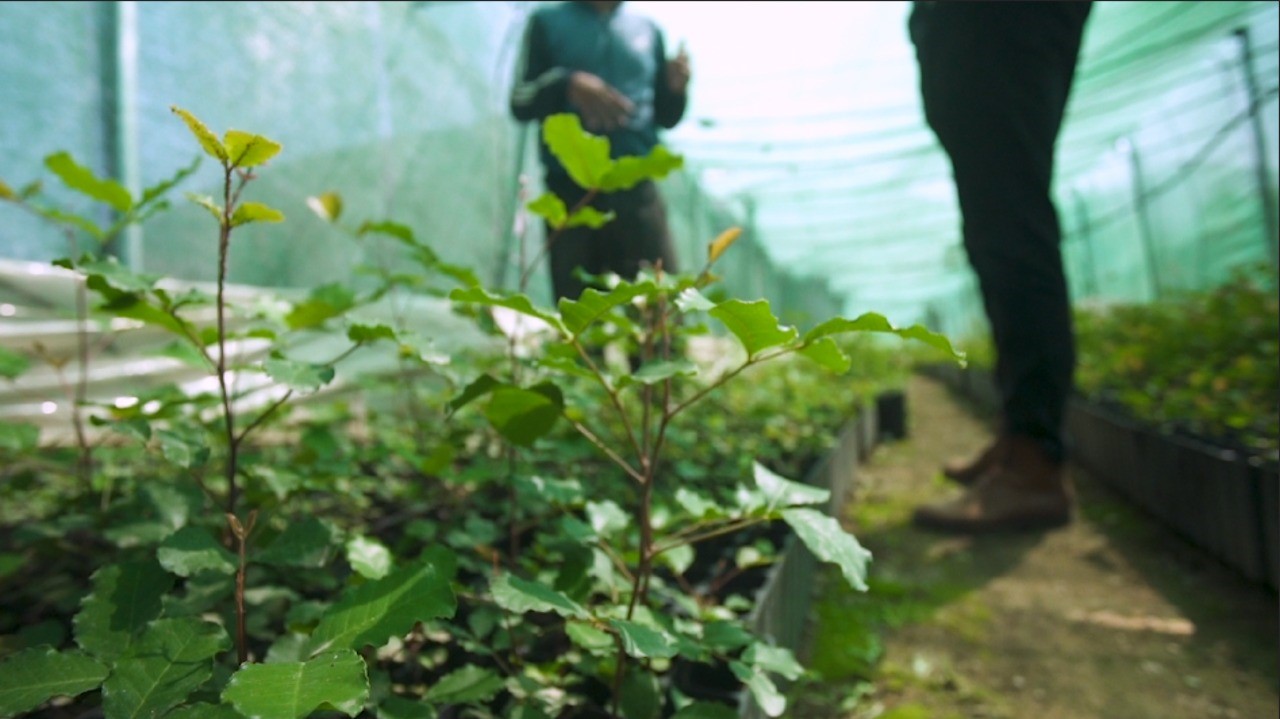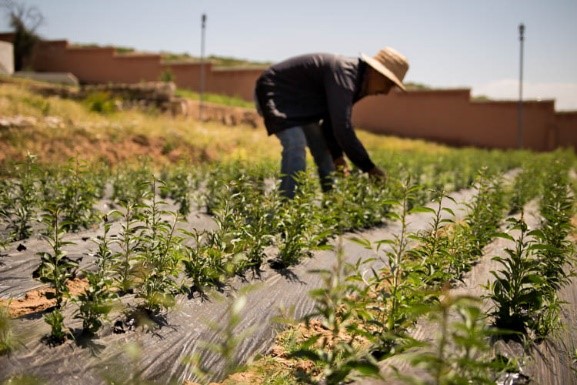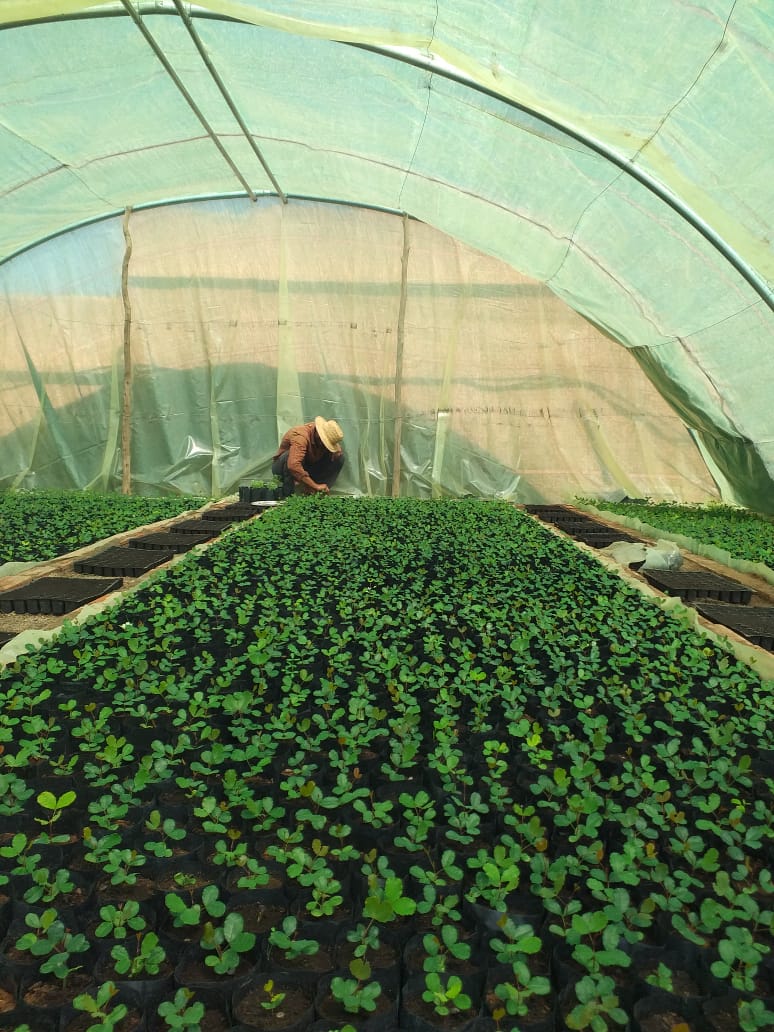The High Atlas Foundation relies on its partners for successful sustainable development projects. Public and private, local, national, and international – the agencies, companies, universities, groups, and individuals who support HAF make possible the fulfillment of its mission.
The High Atlas Foundation would not have survived for the past twenty years without its partnerships. We assist planning and projects that communities identify through inclusive dialogues and workshops as most important to them. We rely on our partners to support our efforts and the successful fulfillment of these projects.
Because we work primarily in rural areas and 80 percent of rural incomes come from agriculture, most of our projects are in the agricultural domain. Right now, we assist communities in their management of 12 nurseries in Morocco, planting about 1.4 million seeds of organic tree varieties. We also help cooperatives, help certify organic, help process products and create business plans around these initiatives, help create irrigation systems and clean drinking water systems, and engage in women’s empowerment and development. We would be hard-pressed to dedicate ourselves to this range of initiatives without the support (financial and otherwise) of our partners. During this pandemic, USAID’s Farmer-to-Farmer Program in particular has enabled us to bring to bear Moroccan Volunteer-experts paired with U.S. ones so that communities’ capacities are built for success.
Our partnerships are essential to sustainable development. They are multi-sectoral. They are public and private, local, national, and international. They allow the people to achieve their dreams. Development requires attention, thought, strategy, management, and serious, ongoing consideration for the range of requirements of diverse situations. This all-consuming consideration needs to be part of every aspect of what we do. We need heavy involvement in project design and regular meetings to discuss and decide together what we are doing and what we need to do for continued success.
For example, in order to build a tree nursery, we need the contribution of land. Farmers cannot give up even a portion of their land for the two years it takes to grow a seed into a sapling. So, we receive land from the High Commission of Water and Forests, from the Ministry of Education next to their public schools, from the Ministry of Youth and Sports, from the Moroccan Jewish community, and from cooperatives.
Growing trees, supporting rural communities, and supporting small businesses also requires a huge financial investment. For this, we partner with the U.S. government, the Moroccan government, corporations in the U.S., Europe, and Morocco, and thousands of individual donors. Every activity, every community meeting, every project implementation relies on an alliance for finances but also for advocacy and reform. Exchanging ideas and learning together requires engagement and human resource commitment over time.

As an example, one of our partners is Ecosia, a German social enterprise based in Berlin. They are a private business whose entire net revenue goes toward planting trees around the world. Though not our largest funding partnership, they have enabled all of our nurseries to be at maximum capacity, and that is a huge gift to the Moroccan people. Ecosia has two tree-planting officers with whom we primarily interact, as well as a colleague that manages the technical aspects of tree-monitoring and interfaces with HAF’s dedicated tree monitoring team. Each of the trees we plant through our partnership with Ecosia has a GPS point so that it is visited, recorded, and monitored through remote sensing. Ecosia also has a social media specialist who helps convey the stories of the benefits of tree planting for Moroccan families, as does HAF. In this way, the Ecosia and HAF teams find in one another collaborative counterparts who focus in parallel ways on planting, monitoring, and digital storytelling. FRÉ Skincare and Robert Bosch College have also made an important difference for community tree planting in Morocco.
We also rely on our volunteers and interns for our success. The fruitful relationship with Ecosia arose from a German HAF intern who identified the company as a potential partner and reached out to them. That intern later became a HAF staff member, also establishing and managing a renewable energy project with another German NGO partner. Interns like her are profoundly important to our work. We gratefully acknowledge that there have been a number of many wonderful volunteers and interns that add to our human resource capacity, our monitoring and photo documentation, and writing for the public about our projects.
Many of our volunteers and interns come from our university partners. Relationships with universities might not be central to everything we do, but our data gathering, action research, writing and policy recommendations, and advocacy have all been informed by this aspect of our organizational identity. Determining how to plant millions of seeds in nurseries and work with farmers to transplant them and embedding in the design the amount of revenue needed for purchasing the seeds to replenish the nurseries all takes thinking and creativity. This requires the assessment of matters like carbon offsets and feasibility studies. And it is where this army of helpers comes in with ideas for successful, enduring projects that are financially sustainable.
Our organizational culture and mission focus on helping those in the most need. This supersedes infrastructure. As an example, we planted cherry trees in a village that had no road, not even a dirt one, requiring access by mule. It takes about six years for a cherry tree to mature and bear fruit. In those intervening years, the village built the road that would allow easier transport of the fruit. We believe that if we create economic necessity and growth, the building of infrastructure will be justified. The economic opportunities, if realized and implemented, will bring the road. We cannot be intimidated by the current level of infrastructure or lack of it. For a tree nursery, we need a solar pump, a basin to contain water and piping, and a small structure to house the pump system and solar panels. If it doesn’t exist or we can’t afford to build it, we find ways of being effective within those limitations. Likewise, the thousands of required contracts for carbon credit monitoring of each farmer who plants just five trees is hard to facilitate, but are we not supposed to help the farmer that needs it most? There is a cost to focusing on the most marginalized and disadvantaged, but we are willing to incur that cost.
We also need to emphasize the partnership with the Moroccan government, and in particular the freedom for national scale expansion enabled by the frameworks and contexts by His Majesty King Mohammed VI. One of the great things about Morocco is the desire – through its laws, policies, and programs – for the participatory approach to development and community engagement in the planning, implementing, and managing of projects. There are other countries where NGOs have an extremely difficult time in raising money and building relationships with government agencies, with not being trusted, and of even being closed down. This is fortunately not the case for us in Morocco. We are encouraged to do what we do and to succeed at it.
In one example, HAF was given land by the Moroccan Jewish community next to a burial ground of a thousand-year-old Jewish saint–empty land that was lent to us cost-free for a tree nursery. That nursery is being built with $55,000 from the Moroccan government (National Initiative for Human Development). This is one of the ways that we also foster interfaith experiences to the benefit of all. Here, we have an Islamic government supporting a tree nursery to benefit its people, built on land donated by the Jewish community. Embracing all religious identities that are part of the Moroccan story and experience supports multiculturalism as well as participatory actions. This has given us great flexibility to advance sustainable change.
Multiculturalism leads to human development. Our partnerships have allowed us the space and support to gather, engage, plan, act, and even reconcile. Partnerships require persistence over years. The interfaith nursery, for example, was an idea from 1995 that finally came to fruition in 2012. The process can be difficult, but it gives us hope.
Dr. Yossef Ben-Meir is president and co-founder of the High Atlas Foundation in Morocco.






